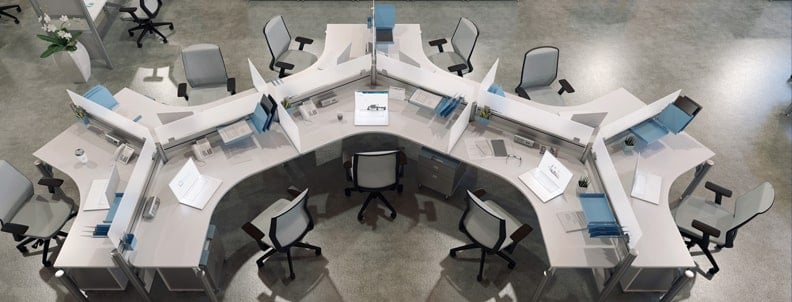
There are many reasons why a business might decide to move (or extensively renovate for that matter) its office.
The impact of the last few years on the office environment is undoubtedly leaving many businesses wondering how to navigate the needs best and consider the best moves for their organization. It is vital that a company really comprehensively understands the reasons to move their office so they are clear on communicating that with all stakeholders involved. Perhaps your lease is expiring, prompting the consideration of changing the location or size of your office space, combined with a renewed strategy for your business development.
The decision to relocate may be due to many factors, such as:
Expansion or Growth
One of the most common and most desired reasons to move is that a business has outgrown its current space. Due to expansion, it may need more room for equipment, inventory or employees. Sometimes, it can also be the diversification of its presence by opening new branches or offices in a variety of locations.

Cost Savings
With remote work options, hotel and hot-desking configurations, or just the rising costs of real estate, a company may choose to move. Reducing operating costs, such as lower rent and reducing utility bills, may drive a business to consider moving to a new location. This may also extend to consolidating multiple locations.
Better Location
If available space is in a more desirable or accessible location, it can be reasonable to consider changing office locations. When you are closer to your targeted market suppliers and can draw from a larger talent pool for employees, your business is better supported for success. This may also allow a business to remain competitive with a better presence.
Employee Needs
Having a comfortable and aesthetically pleasing work environment is essential for office spaces. Companies want their employees to enjoy coming to the office. With an increased understanding of mental health, green spaces, and bio-design in office planning, a company may source a better location to support the technology and provide improved meeting spaces, breathing spaces, and work spaces for their teams.

After knowing the reasons for deciding to move an office, a business will be equipped to assess the needs and goals of the new office space more effectively. If you are puzzling out the pros and cons of deciding whether to move your office space, it is always a great idea to do some homework with experts in your business, spatial configurations, and office design. Getting the perspectives of office leaders as well as your team members can help discern your needs for a new space so it is a desired decision that appeals to all. Best of all, the decision to move an office with an inclusive and comprehensive decision-making approach will contribute to productivity and growth.
Once deciding to move an office, every business leader is challenged with moving forward with a successful move that will make the transition seamless and smooth for all impacted.
Read Part 2 (upcoming) for our Practical guide to Planning an office move that can lead your company to improved productivity and avoid disruption and stress in relocating.
If you are still deciding whether to move an office, our team at atWork would love to help you create ideas and inspiration to help you see the potential for your current space or layout solutions for a future workspace. Connect with us today

Contributing writer Kim Hussey is the creative energy behind The Write View, Cambridge, Ontario.
You can find her enjoying nature or writing from her heart. Go to kimhussey.com to read ways The Write View supports your writing needs.




